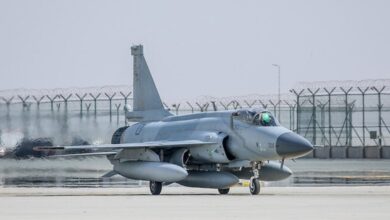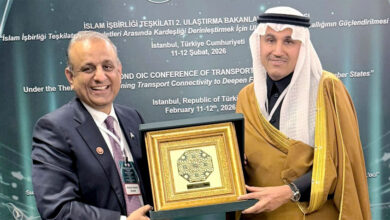Pakistan, China and Afghanistan- All set for More Regional Cooperation

By C. Andrew
With the commencement of CPEC, the role of Pakistan and Afghanistan in the region has become more important. As Afghanistan’s strategic location helps the Central Asia to have access to the Gulf and African markets through Gwadar, and Pakistan being the hub of regional connectivity through Gwadar is set to change the shapes of international trade. In a bid to resolve key issues such as terrorism and peace in Afghanistan, Pakistan along with China and Afghanistan has consistently been holding trilateral dialogues to address issues. With key militant fighters threatening both the relations and CPEC, it is imperative for both Pakistan and Afghanistan to address their concerns in order to achieve the larger cause of regional connectivity. In this connection, Pakistan, China and Afghanistan signed MoU vis a vis anti-terrorism cooperation during second trilateral ministerial dialogue in Kabul on 15 December 20018. The MoU was signed by Pakistani foreign minister Shah Mehmood Quarshi and his Chinese as well as Afghan counterparts Wang Yi and Salahuddin Rabbani respectively. The signing of document was witnessed by afghan President Ashraf Ghani.
While speaking at trilateral dialogue, Salahuddin Rabbani said that collective efforts were required to address the common challenge of terrorism. “We desire to strengthen our relations with Pakistan,” he said and also appreciated the Chinese One Belt One Road initiative. Shah Mehmood Quarshi, during a joint press conference, called for a joint strategy to eradicate terrorism from region. He said he was visiting Kabul to bridge the trust deficit between the two countries. “We all want peace and stability in Afghanistan,” the minister said, adding that Pakistan will continue to play facilitative role in Afghanistan reconciliation process. “We will do everything to support the growing momentum towards reconciliation provided other play their due role and share responsibility and create an enabling environment towards that end.” Whereas, Chinese FM Wang said that Beijing will extend all possible cooperation to build trust and confidence between Pakistan and Afghanistan. China will also assist in establishing connectivity projects including a rail line between Kabul and Kandahar, he said, adding that Beijing “desires to make Afghanistan a part of the CPEC.” China and Pakistan congratulated Afghanistan on the completion of parliamentary elections and welcomed the efforts of Afghan government for holding the presidential elections in 2019.
During the dialogue of three sides, once again, declared their commitment to further strengthen their relations, depending cooperation, advancing connectivity under the Bely and Road Initiative (BRI), Regional Economic Conference on Afghanistan (RECCA) and other regional initiatives. They also reiterated their strong resolve to fight terrorism in all its forms and manifestation, and without any distinction while agreeing to continue efforts for building political mutual trust and support reconciliation, development cooperation and connectivity, security cooperation and counter-terrorism as the three areas of the trilateral cooperation. They resolved to support the Afghan led inclusive peace process that was fully supported regionally and internationally, as the most viable way to bring peace in Afghanistan. In this regard, Pakistan and China appreciated the efforts of President Muhammad Ashraf Ghani especially for the comprehensive peace plans. Moreover, China expressed its readiness to support Afghanistan and Pakistan in building immigration reception cetre and drinking water supply schemes at each side of the Ghulam Khan khel crossing point and to explore cold storage at Chaman and Spin Boldak. They expressed their determination not to allow any country, organization or individual to use their respective territories for terrorist activities against any other countries. They took stock of trilateral cooperation in their fight against terrorism and underlined that need to further strengthen counter-terrorism coordination and cooperation in an effort to combat all terrorist groups and individuals without any discrimination.
Mr Quarshi reaffirmed commitment to eradication of terrorism, and also said that “better border management between Pakistan and Afghanistan and intelligence sharing will be greatly beneficial for the both countries”. He also added that Pakistan will continue facilitative role on Afghan reconciliation process and will do everything to support the growing momentum towards reconciliation. Presence of Afghan President Ashraf Ghani sent a strong signal that Afghan government wants to end this war. President Ashraf Ghani met Chines FM after the signing of the MoU and sought his country’s cooperation on strengthening a regional peace consensus. This step has been taken by any Afghan government to invite China for this outstanding issue of the region sine more than two decades. Mr yi said that his country also wants to further strengthen relations with Afghanistan and desires to make it part of CPEC. Pakistan being the victim of terrorism has always supported dialogue process for peaceful resolution of Afghan conflict and has always welcomed and step taken by international community for peace resolution.
Chinese Think Tank however, expressed concerns as Hu Zhiyong, a research fellow at the Shanghai Academy of Social Science Institute of International Relations has warned that the move to include China in peace process in the region may lead to sabotage from India in order to destroy the implementation of BRI in Pakistan and India has always believed that BRI is a strategy by china to encircle India and show its dominance in Asia and has been accused by Pakistan of supporting the nationalist insurgents in the Baluchistan Province. Separatists from Baluchistan who oppose BRI projects in the province claimed the responsibility for an attack in November against the Chinese Consulate that killed four people. Meanwhile, Li Wei a counter-Terrorism expert at National Defence University, told the Global Times that in long-term, India will also benefit from a better security situation in South Asia. Li noted that China uphold the win-win strategy and its principle of “Afghan-led and Afghan-owned” in promoting the reconciliation process in accordance with the country’s own will with regard to the issue, which is a major reason for the smooth proceeding of the trilateral dialogue. Moreover, Chinese Foreign Ministry Spokesperson HUua Chunying while terming the second China, Pakistan and Afghanistan Trilateral Foreign Ministers Dialogue held in Kabul a great success, said that china would remain in close contact with the two sides to implement the agreement made during the dialogue, “We believe that meeting is a great success. We will remain in close contact with the two sides to implement these relevant agreements,” Chunying said during regular briefing.





